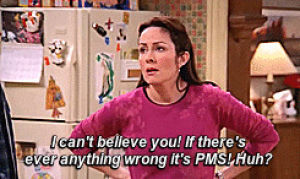In a sort of continuation from my previous post, this article analyzes the rom-com's dislike of capable, professional, "demanding" women.
Alexis Soloski eviscerates the trope, as the hero "must" be rescued from the no-nonsense fiance that he, we presume, willingly dated until the floaty girl-woman flits by.
Soloski references Baroness Schraeder from "The Sound of Music." As a child, I knew I was supposed to dislike her, but why, really? Her wardrobe is divine, she oozes wit, intelligence, and sophistication, and is, one would think, more appropriate for the brisk, grim Captain than an unworldly former nun who is probably 20 years, at least, his junior.
"Behind every great man is a great woman"—I can assure you those women kick keister.
The other side of the coin is the "boring boyfriend," that is not "exciting enough" for the heroine. He's nice, but seemingly bland. I'm still recovering from the improbable ending of "Sweet Home Alabama," when Reese Witherspoon tells Patrick Dempsey at the altar that she can't marry him because she loves someone else. His response is to smile angelically and reassures her he understands. Puh-leez.
Undergirding these characters, almost all of them created by men, is a troubling male fantasy, that the ideal woman will depend on a man almost entirely, but ask nothing from him and that women who do ask are too much trouble. Who decided that women who know what they want and ask for it are monsters and that men who don’t know and don’t ask are simps? Clichés like these efface the complications of real relationships. Sometimes we leave nice people. Sometimes nice people leave us. And maybe assertive, uptight women don’t even need a man to live happily ever after. But if they want one, they should get him.
We all know no-nonsense women that are married, as are milquetoast men. The popular girl in school was never the wide-eyed naif; it's the commandant of the classroom. She gets her man, and not by standing idly by.







